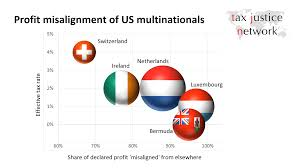According to Law360, the past year saw a number of important international tax cases, including rulings about conflicting statutory and regulatory language involving U.S.-held foreign financial accounts and $608 million paid by Boston Scientific Corp. in a transfer pricing dispute.
U.S. v. Colliot
In the first of two separate but similar decisions favoring U.S. holders of foreign financial accounts, Judge Sam Sparks of the U.S. District Court for the Western District of Texas addressed the failure of Congress and the IRS to correct conflicting statutory and administrative language over penalty amounts.
Judge Sparks found in a May 15 ruling that a 1987 penalty cap of $100,000 for undisclosed offshore accounts — set by the Internal Revenue Service under Section 1010.820 of the Code of Federal Regulations — still applied even though federal lawmakers had raised the threshold through a 2004 statute.
Some practitioners have reacted to the Texas ruling and a subsequent decision in a Colorado federal court by saying the cases could affect other situations in which the U.S. Department of the Treasury had neglected to update regulations to reflect statutory changes in the tax code.
Judge Sparks sided with Texas resident Dominique Colliot, who was fighting an IRS attempt to collect more than $917,000 in civil penalties for his allegedly willful failure to disclose overseas accounts on federal Foreign Bank and Financial Accounts reporting forms, known as FBARs.
According to the judge’s order, the changes made in 2004 set a ceiling for penalties, not a floor. Instead, Congress ultimately gave discretion to Treasury when it came to assessing penalties, Judge Sparks found.
The case is U.S. v. Dominique G. Colliot, case number 1:16-cv-01281, in the U.S. District Court for the Western District of Texas.
U.S. v. Wahdan
In a separate FBAR case decided in July, two months after Colliot, Judge Marcia S. Krieger of the U.S. District Court for the District of Colorado issued an opinion with reasoning she called “congruous” to the Texas court’s ruling. Judge Krieger sided with a married couple, Denver-area restaurant owners Urayb and Said Wahdan, who had challenged an IRS attempt to collect over $2.3 million in penalties for purported failure to disclose Swiss bank accounts in 2008, 2009 and 2010.
The Wahdans had earlier told the district court they disputed all the penalties the IRS assessed but filed a motion specifically challenging those that exceeded $100,000. Like Colliot in Texas, the couple argued that the IRS’ 1987 regulation was still applicable, despite the existence of the 2004 law.
With the two federal district court rulings left intact, some practitioners say the 31-year-old cap on penalties could be adopted nationwide, while others consider that outcome unlikely and note that the precedential value of the decisions is limited to the courts’ respective jurisdictions.
Other experts have questioned the IRS’ view — encapsulated in its argument in Colliot — that the 1987 regulations were rendered invalid simply by virtue of Congress’ revision of the relevant statute. Whereas the pre-2004 regulation capped the penalty for “willful” violations of the FBAR statute at $100,000, the 2004 statutory amendment provided for a penalty of the greater of $100,000 or 50 percent of the undisclosed account balance.
“One can infer that the agency didn’t intend for [the penalty cap] to continue in force and that undoubtedly the thought process was that it was superseded by the amended legislation, but I really think the [two rulings] are correct” in establishing a split between the regulation and the revised statue, said Patrick J. Smith of Ivins Phillips & Barker Chtd. in Washington, D.C.
Others suggested the rulings in Colliot and Wahdan could materially hinder the government’s ability to exact penalties in FBAR cases beyond the district courts in Texas and Colorado.
“I’m wondering, frankly, whether the defense bar, the taxpayer bar, is going to seize on these cases and seek to make challenges elsewhere,” said Stuart D. Gibson, of counsel with Schiff Hardin LLP in Washington, D.C., and a former senior tax litigator with the U.S. Department of Justice.
John Warner of Buchanan Ingersoll & Rooney PC called the holdings in both Colliot and Wahdan “a bit extreme.” He said that while the IRS isn’t required to impose, even potentially, the maximum civil penalty prescribed by a statute, the regulation cited by both district courts “was promulgated when the relevant statutory limit was lower, so a fair interpretation of that regulation was that it was simply implementing the then-current statutory limit.”
“If I were the government, I might ditch the old regulations, but I would certainly appeal Colliot and Wahdan if I thought that the higher penalties sought are still appropriate under the post-2004 statute as applied to the taxpayers involved,” he added.
The IRS, which doesn’t comment on litigation involving individual taxpayers due to privacy considerations, has the right to appeal the district court rulings. Based on filings with the Texas court, the agency appears to have waived that right, and Judge Sparks issued an order on Nov. 18 for $570,314 that Colliot had paid the government to be returned to him. The remaining balance of the penalties he had paid in wage garnishments to the IRS is to be reimbursed later, the judge ordered.
In the Colorado case, the IRS and the Wahdans, according to a Dec. 7 filing, jointly requested that the district court grant more time for both parties to submit motions related to the government’s bid to reopen discovery.
The case is U.S. v. Urayb and Said Wahdan, case number 1:17-cv-01287, in the U.S. District Court for the District of Colorado.
Guidant et al. v. Commissioner
Medical device maker Boston Scientific Corp. disclosed in a May regulatory filing that it had been ordered to pay $608 million in taxes and interest in a final stipulated decision resolving transfer pricing issues with the IRS.
The company had entered a $275 million settlement in 2017 over tax years 2001 through 2007 that was contingent on applying the same transfer pricing basis to its 2008-2010 tax years, as well as a review by Congress’ Joint Committee on Taxation.
The case began when Guidant Corp., which produced devices such as pacemakers and was acquired by Boston Scientific in 2006, and its domestic and foreign subsidiaries sued the IRS in 2011 for a redetermination of hundreds of millions of dollars in deficiencies and so-called accuracy-related penalties.
In February 2016, Guidant lost its bid to challenge IRS adjustments that increased its income by about $3.5 billion when U.S. Tax Court Senior Judge David Laro ruled that the agency had acted well within its authority. The company had argued the IRS should have calculated the separate, taxable income of each controlled taxpayer and made specific adjustments to each transaction that involved the sale of manufactured products and services.
But Judge Laro denied Guidant’s motion for partial summary judgment at the time, saying the IRS had broad discretion to allocate income among controlled enterprises either to reflect income clearly or prevent tax evasion and was not statutorily required to determine the true separate taxable income of each controlled taxpayer in a consolidated group while making transfer pricing adjustments.
The case is Guidant LLC et al. v. Commissioner of Internal Revenue, docket numbers 5989-11, 5990-11, 10985-11, 26876-11, 5501-12 and 5502-12, in the U.S. Tax Court.
Starr International v. U.S.
In a dispute currently being appealed before the D.C. Circuit, Starr International Co. Inc. lost a suit seeking a refund in August 2017 when U.S. District Judge Christopher R. Cooper found that the IRS had reasonably concluded the insurer’s move to Switzerland from Ireland was improperly based on its seeking tax treaty benefits. Earlier this month, a three-judge panel of the circuit court ruled that the district court had wrongly concluded in February 2016 that the case involved a political question outside its reach.
Judge Cooper had concluded that ordering the IRS to grant Starr’s refund request, sought under a U.S.-Swiss tax treaty, would encroach on the diplomacy rights of the U.S. government’s executive branch.
The U.S.-Swiss treaty contains a limitation-on-benefits, or LOB, test outlining conditions for a company to receive treaty benefits. Starr had acknowledged that it didn’t satisfy the objective mechanical test under the LOB provision but asked the IRS for relief under the treaty’s discretionary article, which allows the agency to negate treaty benefits for transactions where it has determined that the “principal purpose” was to take advantage of the treaty.
After appealing Judge Cooper’s decision to side with the IRS, Starr said in May the principal purpose test, as outlined in a technical explanation of the U.S.-Swiss treaty, was meant to assess whether a taxpayer’s move to either the U.S. or Switzerland was really to funnel treaty benefits to a party in a third country.
The case is Starr International Co. Inc. v. U.S., case number 17-5238, in the U.S. Court of Appeals for the D.C. Circuit.
U.S. v. Facebook et al.
In November, the U.S. District Court for the Northern District of California declared Facebook Inc. and the IRS had resolved their disagreement over privileged documents in their transfer pricing dispute. In an unsigned joint status report, the court said attorneys for the government and Facebook had “resolved all remaining disputes” in their quarrel over whether three documents submitted by the social media giant were entitled to continued privilege.
Facebook’s dealings with its subsidiary in Ireland are at the center of a multiyear IRS audit that prompted the agency to issue a notice of deficiency relating to the company’s transfer pricing for the 2010 tax year. The overall dispute centers on licensing agreements transferred to Facebook Ireland that the U.S. company said are worth $6 billion. The IRS claimed they’re valued at $14 billion.
The case is U.S. v. Facebook Inc. and Subsidiaries, case number 3:16-cv-03777-LB, in the U.S. District Court for the Northern District of California.
Read more at: Tax Times blog















